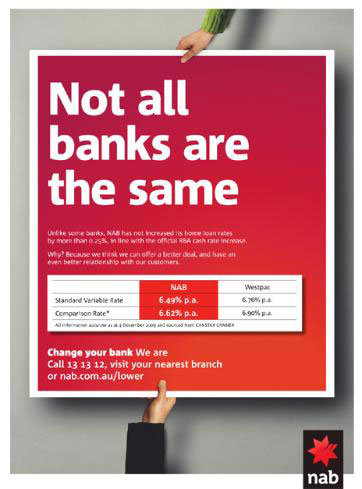Investing can be a powerful wealth-building tool, but it also carries risks, especially when it comes to financing your investments. As you will learn from centralcharts.com, financing decisions can lead to significant financial setbacks or even loss of assets. To help you navigate this financial terrain successfully, here are some common mistakes to avoid when financing your investments.
Overextending Your Budget
One of the most common mistakes investors make is overextending their budget. This happens when individuals borrow more money than they can comfortably afford to invest. Overleveraging can magnify gains, but it can also amplify losses, putting your financial stability at risk. Before investing, carefully assess your financial situation and create a budget to help manage your investment and any associated debt comfortably.
Ignoring Interest Rates
Interest rates play a pivotal role in financing investments, particularly when using loans or credit lines. Ignoring interest rates or failing to shop for the best rates can significantly impact the overall cost of your investments. Research interest rates diligently and consider negotiating with lenders for lower rates. Look for financing options that offer favorable terms and consider the impact of interest on your returns.
Neglecting Diversification
Investing all your funds into a single investment or asset class can be a risky move. Neglecting diversification means you’re not spreading your risk, and if that particular investment performs poorly, you could incur substantial losses. Diversify your investment portfolio across different asset classes, industries, and geographical regions to reduce risk. This can help mitigate losses if one investment underperforms.
Timing the Market
Attempting to time the market perfectly is a common mistake. Investors often try to buy low and sell high, but accurately predicting market movements is incredibly challenging. Trying to time the sector can lead to missed opportunities or selling at a loss due to impulsive decisions. Instead of timing the market, focus on a long-term investment strategy. Invest based on your financial targets, risk tolerance, and a well-thought-out plan rather than trying to predict short-term market fluctuations.
Neglecting Emergency Funds
Investing can tie up your capital, making it inaccessible in case of emergencies. Neglecting to set aside an emergency fund before investing can force you to liquidate investments prematurely, potentially resulting in losses. Ensure you have an emergency fund with three to six months’ worth of living expenses before committing a significant portion of your cash to investments.
Failing to Conduct Due Diligence
 Inadequate research and due diligence can lead to investments in assets or ventures that aren’t suitable for your financial goals or risk tolerance. Mindlessly following trends or tips without understanding the investment can result in losses. Take the time to research any investment opportunity thoroughly. Understand the asset, its historical performance, associated risks, and potential rewards. Seek advice from financial professionals if needed. In conclusion, financing your investments requires careful planning and consideration to avoid common mistakes that can negatively impact your financial well-being.
Inadequate research and due diligence can lead to investments in assets or ventures that aren’t suitable for your financial goals or risk tolerance. Mindlessly following trends or tips without understanding the investment can result in losses. Take the time to research any investment opportunity thoroughly. Understand the asset, its historical performance, associated risks, and potential rewards. Seek advice from financial professionals if needed. In conclusion, financing your investments requires careful planning and consideration to avoid common mistakes that can negatively impact your financial well-being.
…
Read More



 Although a gold IRA can be an attractive investment option, several factors must be considered before opening one. First, you need to understand the types of investments allowed under the IRA guidelines and determine which will best suit your financial goals. You should also research the storage and security measures associated with each type of account and ensure you understand all related fees and taxes. Additionally, selecting a reputable gold seller or custodian to manage your account is crucial. Lastly, investors should review their options at least once yearly to ensure that their investments align with their goals.
Although a gold IRA can be an attractive investment option, several factors must be considered before opening one. First, you need to understand the types of investments allowed under the IRA guidelines and determine which will best suit your financial goals. You should also research the storage and security measures associated with each type of account and ensure you understand all related fees and taxes. Additionally, selecting a reputable gold seller or custodian to manage your account is crucial. Lastly, investors should review their options at least once yearly to ensure that their investments align with their goals.
 One of the biggest mistakes that new investors make is buying a property before paying off their debt. This can put you in a risky situation, as you could end up with two mortgages to pay if the investment goes south. It is always advisable to pay off your debt before investing in real estate. In addition to increasing your risk, it will also lower your monthly expenses and free up more money to invest in additional properties.
One of the biggest mistakes that new investors make is buying a property before paying off their debt. This can put you in a risky situation, as you could end up with two mortgages to pay if the investment goes south. It is always advisable to pay off your debt before investing in real estate. In addition to increasing your risk, it will also lower your monthly expenses and free up more money to invest in additional properties. One of the biggest challenges for new investors is coming up with a down payment. However, there are several ways to secure a down payment without selling your soul. One option is to borrow money from family or friends. You can also look into government programs that offer assistance for first-time homebuyers.
One of the biggest challenges for new investors is coming up with a down payment. However, there are several ways to secure a down payment without selling your soul. One option is to borrow money from family or friends. You can also look into government programs that offer assistance for first-time homebuyers.
 Some gold investment companies will charge you fees just to hold your gold. Others may charge fees for shipping or other services. Be sure to ask about all potential fees before you make your decision.
Some gold investment companies will charge you fees just to hold your gold. Others may charge fees for shipping or other services. Be sure to ask about all potential fees before you make your decision. If you want to be able to see your gold physically, you will need to find a company near you. However, if you are comfortable storing your
If you want to be able to see your gold physically, you will need to find a company near you. However, if you are comfortable storing your 

 It is important to ask questions to determine whether an insurance company is an excellent choice for you. Ask your broker for these questions, for example, what your insurance covers and what it does not cover. Ask if the government supports your policy. Do not forget to ask for the payment you expect to receive if you are paid.
It is important to ask questions to determine whether an insurance company is an excellent choice for you. Ask your broker for these questions, for example, what your insurance covers and what it does not cover. Ask if the government supports your policy. Do not forget to ask for the payment you expect to receive if you are paid.
 The journey to a successful investment can have many distractions and barriers that could take you off the road. The way to maintain and overcome the road would be to develop a strategy and stick to it. For example, your goal is to invest in trades, one way you can be successful with it, is by getting help from a
The journey to a successful investment can have many distractions and barriers that could take you off the road. The way to maintain and overcome the road would be to develop a strategy and stick to it. For example, your goal is to invest in trades, one way you can be successful with it, is by getting help from a Keeping a list of your investments can be a great learning tool to identify strategies that may be a vision of an investment that works, and that works best for you or that didn’t work well.
Keeping a list of your investments can be a great learning tool to identify strategies that may be a vision of an investment that works, and that works best for you or that didn’t work well.
